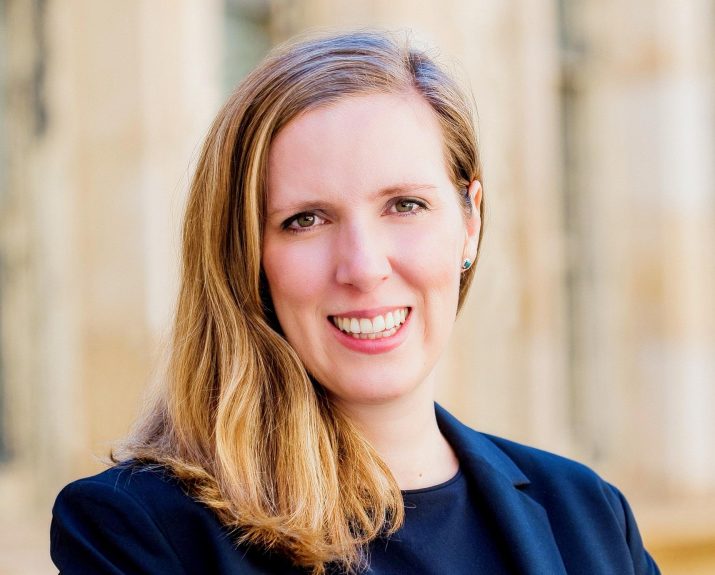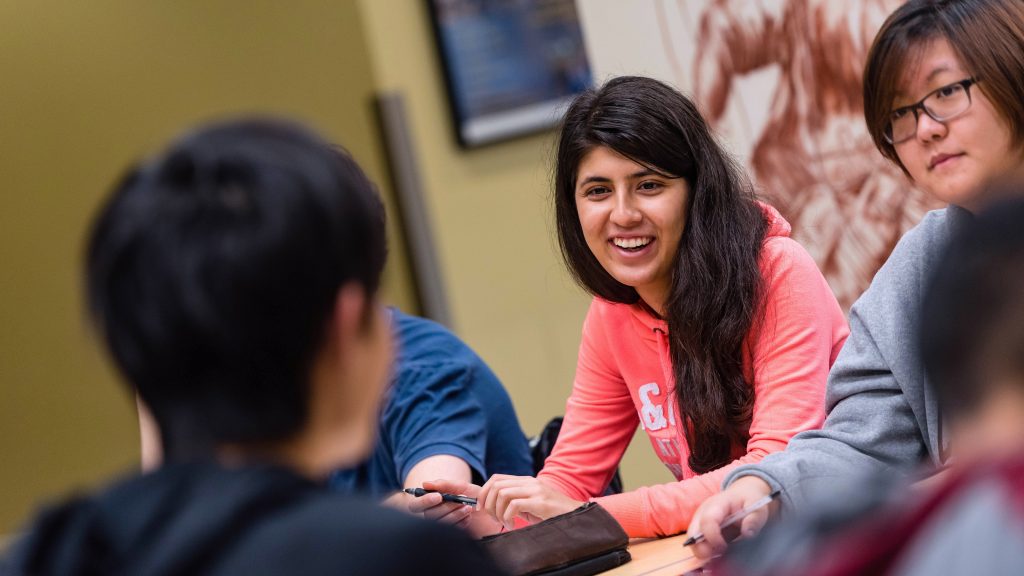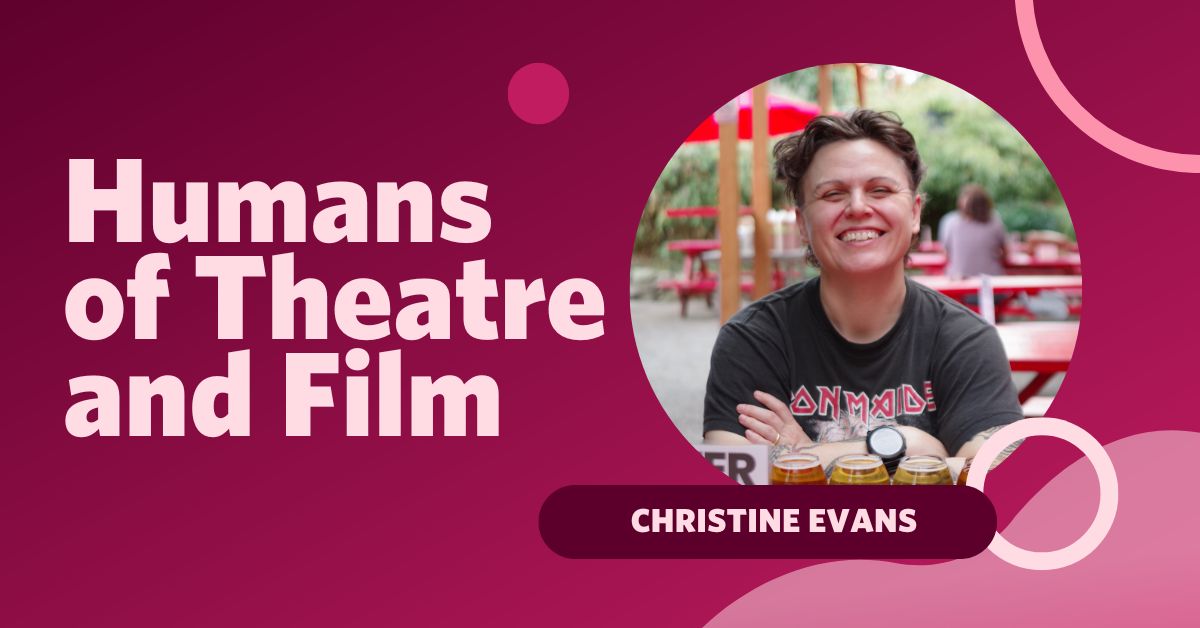

As either a current or prospective Arts One student, you may wonder: what’s after Arts One? Over the years, students in this program have gone on to pursue a variety of different paths, bringing with them the valuable skills they learned during their time in the program.
In this interview, Dr. Katie Mathew (Reason and Madness 2005-06) discusses her work on early childhood education, and the significant role the Arts One program played in shaping her educational trajectory.
Tell us a bit about where you are now and what you are doing.
Since graduating from UBC in 2009, I have been studying and working in the field of Education. I completed a Master of Arts in Child Study and Education from the University of Toronto in 2012, and went on to teach a variety of ages and subject areas for seven years in Toronto, Vancouver, and Philadelphia. In 2018, my partner and I moved to Philadelphia, and I began a Ph.D. in Educational Leadership and Policy at Drexel University. I successfully defended my dissertation in May and graduated in June 2023. My research focuses on children’s transition to kindergarten, and in particular, the beliefs and priorities of minoritized families during this time.
What was your favourite Arts One text? Favourite lecture? What stood out to you the most about that particular text and that particular lecture?
Looking at my bookshelf, I still have many of the books that I bought as part of the Arts One program in 2005/2006. Anyone who has moved cross-country and globally several times will realize how remarkable this is, as moving stacks of books is no small feat. I have held on to these books because I really cherish and value the foundational texts that we read over the course of my time in the program. The overarching theme we explored during my year in Arts One was “Reason and Madness” and my seminar professor was Mark Glouberman. I appreciated how the instructors established the foundation of this theme in antiquity, through texts like Plato’s Republic and Sophocles’ The Aeneid, and across time, through texts like Dostoyevsky’s Notes from the Underground. But I really fell in love with the more contemporary texts related to this topic like Toni Morrison’s Beloved and Sylvia Plath’s The Bell Jar. In particular, Morrison’s Beloved stands out due to her vivid voice in telling the story of the unspeakable cruelty of slavery. In the book, she addresses themes related to race and racism, community, cultural identity, resilience, and family which continue to be themes that I am interested in with my research today, and I explore how these themes manifest in our current education system.
What motivated you to pursue graduate studies? Did your experiences in the Arts One program influence your decision?
I was motivated to pursue graduate studies because I have always been attracted to big questions and analyzing complex problems in such a way that we can first, understand them better, and then, hopefully make improvements to our current systems through altering our ways of thinking, being, and doing. In pursuit of this, I have always wanted to know more about what led us to where we are.
“I think the Arts One program was a foundational part of my educational trajectory in that it inspired me to think about how humans have grappled with big ideas over time. And what better way to dig into big ideas than through great works of literature!”
I think the Arts One program also supported my development as an active class participant and writer. When I entered the program, I was a shy student from Vancouver Island, and in the Arts One program, I was encouraged to discuss big ideas with my peers in seminar and critically evaluate my writing on a weekly basis. I think these experiences and skills have carried me forward through graduate school and beyond.
What academic/career plans or goals did you have in mind immediately after finishing the Arts One program? Have those plans or goals changed over time?
It is difficult for me to remember what plans and goals I had in mind immediately after finishing the Arts One program. One thing I will say for sure is that the Arts One program fomented my desire to learn more about history through philosophy and literature. In my second and third years at UBC, I took courses in English Literature and Philosophy and went on a Go Global Exchange to Lyon, France. I may not have pursued these courses and opportunities without my experiences in Arts One. If I can convey some wisdom upon future generations of students, it is to take the opportunity, especially in your first and second years of your undergraduate studies, to explore your interests. Giving yourself the opportunity to follow your passions may not feel “goal-oriented” at first but it can be a foundation for finding your future – the throughline is there, you just need to find it.
As you may know, the Arts One program places much emphasis on pedagogy, and students get to work closely with their seminar leaders. I understand that your work focuses on early childhood education, and that there are significant differences between early childhood education and postsecondary education. Even with these differences though, I’m curious whether your experiences in Arts One have shaped your approach to pedagogy more broadly.
A fundamental element of excellent teaching is relationships, which is true at any level of education from early childhood to postsecondary. When I was an early childhood and elementary educator I prioritized positive and supportive relationships with students, just as I do now that I teach at the postsecondary level.
“The Arts One approach to pedagogy supports first-year undergraduates in forming strong, collegial-type relationships with their professors, which makes for a more powerful learning experience.”
A first-year program that values relationships between students and professors is unique, where large, impersonal lectures are more the norm. I think having been exposed to a pedagogical model that prioritizes relationships through the Arts One program, from the outset of my university career, has continued to influence my approach as a student and professor.
What are your plans for the next few years?
Currently, I am teaching in the Teacher Education and the Ph.D. programs in the School of Education at Drexel University. I am also conducting research in affiliation with the Justice-Oriented Youth (JoY) Education lab, Second Story Collective and the Writing Project in Philadelphia. I have designed and implemented a curriculum for a summer kindergarten transition program over the past three years, and I am planning to publish and present parts of my dissertation over the course of the next year. I love teaching and learning, and one day, I hope to share my expertise and explore my areas of research interest through a professorship.


